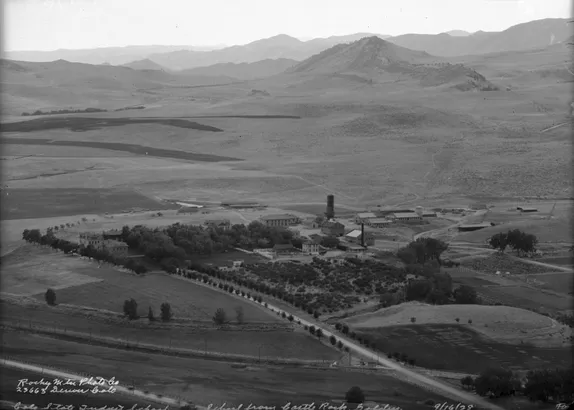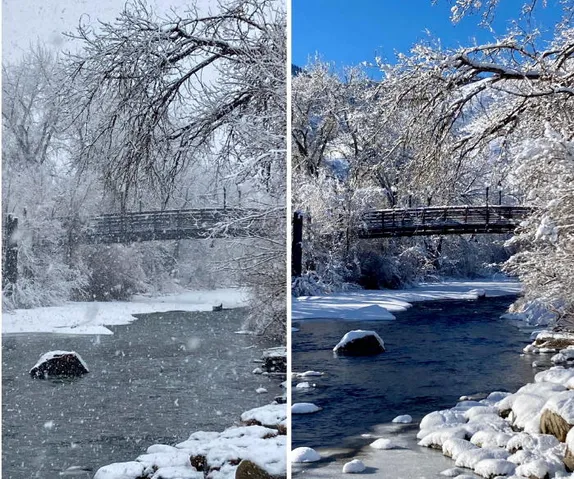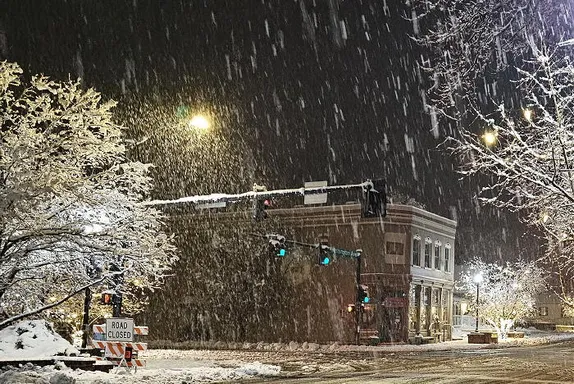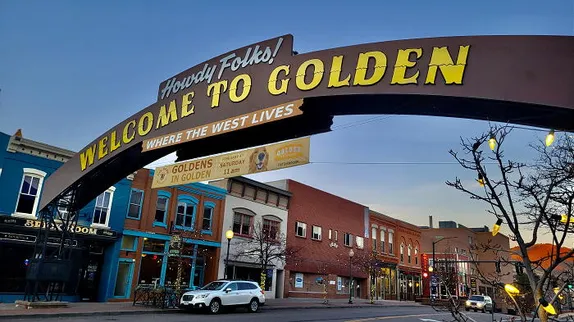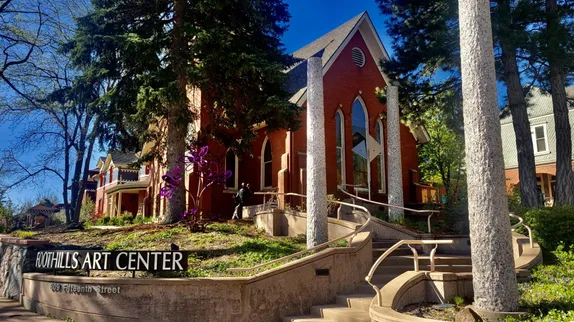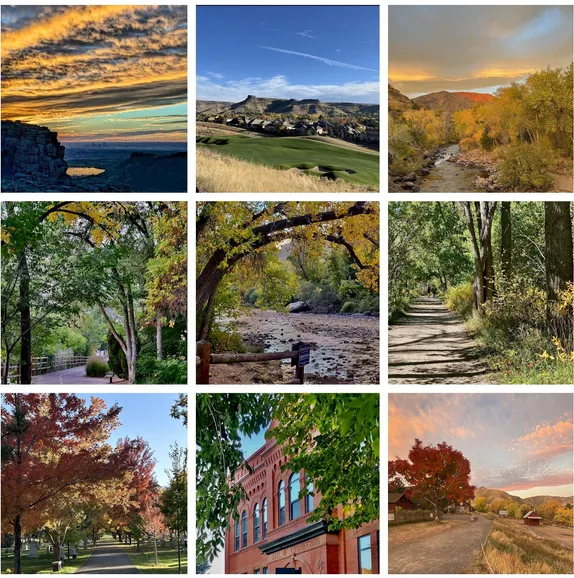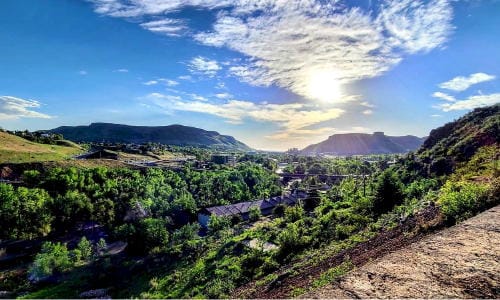
Coronavirus Update
Public Health References
CDC * Colorado * Jefferson County * City of Golden
Jefferson County’s case count page says that as of 3PM yesterday, there have been 2,694 cases in Jefferson County (up from 2,663). There have been 173 deaths (up from 172) and 373 have been hospitalized (up from 369). There are 222 known cases in Golden (up from 217).
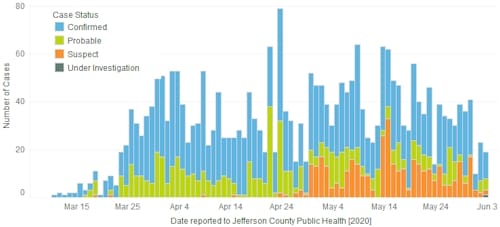
The Safer at Home protocol is now in effect. Check the City’s site to learn more about what that entails. Everyone is still requested to wear a mask that covers the nose and mouth when leaving the house. City and County fire restrictions are in place. Clear Creek is closed to all recreational activities.
Virtual Golden
8-8:55AM Virtual Zumba
9AM Public Art Commission Meeting
10:15-11:15AM Preschool Time with the Golden Library
11-11:30AM Golden History Museum Lecture – Object Lessons with John J. Herold and his Casserole – please click the link & register ahead
6:30PM City Council Business Meeting
City Council meets this evening. They will authorize a resolution stating that Calvary Church has completed their plaza and the re-routing of traffic from Arapahoe Street through Miners Alley. There is a recommended amendment which will oblige Calvary to fix anything that falls apart within the first three years. They will also authorize the City to apply for Gaming Grant money to defray the costs we incur in providing rescue operations in Clear Creek Canyon. The Mayor and Council will update us on the progress of their various subcommittees, and the City Manager will provide an update on COVID-19 responses.
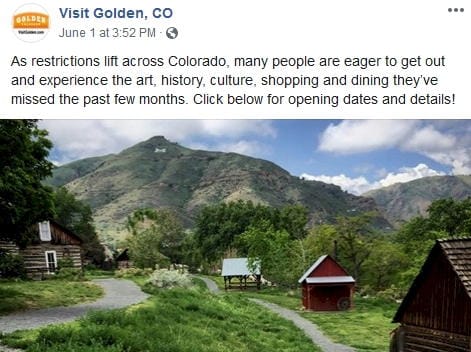
Council will discuss again whether we should make face masks mandatory when wandering the streets and trails of Golden. This is of concern because we will attract more and more tourists as the summer progresses.
Golden History Moment
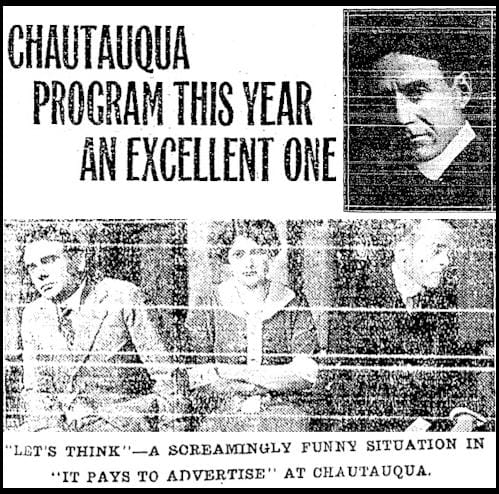
One hundred years ago, Golden was gearing up for the visit of a traveling Chautauqua. 1920 was the second of four years that Golden hosted such a program.
The Chautauqua movement began in the 1870s in upstate New York. It was a resort–a camp–that offered lectures, concerts, and plays. It was popular with well-heeled families, intellectuals, and progressives. Over time, similar institutions were built in other parts of the country. Boulder’s Chautauqua, which was built in 1898, is a good example of these “permanent” Chautauquas.
Eventually, traveling Chautauquas developed, which moved from town to town. Several towns in Colorado hosted these traveling shows, including Greeley, Montrose, Salida, Loveland, and Rocky Ford. In late November of 1918, the Colorado Transcript announced that Golden would host its own Chautauqua the following June.
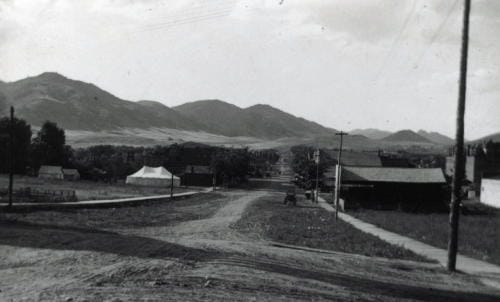
The traveling company arrived in June of 1919, setting up a tent to serve as their performance space. The Transcript promoted the events in advance and featured some advertising, but said little about them afterwards. The paper did say that several local citizens had guaranteed the contract, and announced that this year, unlike last, “cheap season tickets” would not be sold.
The Transcript never mentions ticket prices for the Golden Chautauqua, but an article by their Morrison correspondent mentions that season tickets would be $2.50 for the Morrison Chautauqua.
At the conclusion of the 2020 season, the paper reported that the season had been very successful and a return next year had been assured with a contract signed by 50 Golden people.
Apparently those 50 high-minded citizens were left holding the bag for any costs not covered by ticket sales. A May 1921 article said “Denver guarantors for the Chicago grand opera went in the hole to the tune of $17,000. Hope the Golden Chautauqua doesn’t go that far behind.”
At the end of the third summer event (in 1921) the paper said, “Golden’s third Chautauqua season closed last Friday night, after a series of fair entertainments. Indications are this city will not be on a Chautauqua circuit next year, as those who have had to dig up each year to make up the guarantee did not feel like signing again.”
In October, they were approached again by the promoter, and he persuaded several people to sign on again for the following year.
The 1922 Golden Chautauqua was held in the Golden Opera House, rather than a big tent. Once again, there were musicians, lecturers, and plays. The Transcript made no comments after the event, but the next spring (June 28, 1923) there was a brief comment in the paper saying only “Anyway, we don’t have to bother going to Chautauqua this summer.”
The bad taste must have lingered, because in 1925 the paper commented, “This is the time of year when guarantors of Chautauquas hold meetings and decide how much they will have to dig up to make up deficits. Chautauqua managements always work on a sure-thing basis, and a few public spirited citizens are always the sure things. However, it seems that every town and city falls for the plan at least once in a lifetime.”
Wikipedia has a good article that traces the history of the Chautauqua movement. It implies that the traveling shows were a significant step down from the higher-toned permanent ones.
I’ve always found the concept of Chautauquas appealing. My father, who was born in 1921, remembered attending them in rural Iowa when he was very young. When those programs were popular, there were few forms of cultural enrichment available. Only big cities had theaters or could attract lecturers. Radios were new and rare, as were gramophones. Most towns didn’t even have libraries. The chance to hear some new thoughts, professional musicians, and see a play must have been pretty appealing.
When you think of a normal, non-COVID week in Golden, you would expect opportunities to hear several lectures a week at the museums, the School of Mines, or Golden Beer Talks. We have multiple live music options almost every night of the week, art installations at Foothills Art Center and many coffee shops. Then of course, there’s the library, the internet, Netflix, etc. Modern life is a perpetual Chautauqua.

